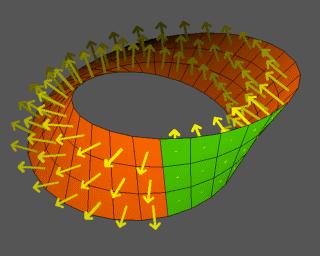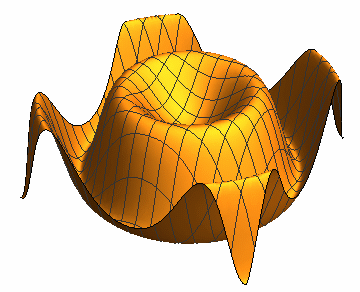 STACK Documentation
STACK Documentation
Documentation home | Category index | Parent | Site map
Predicate functions
A predicate function takes an expression and returns Boolean values true or false.
The convention in Maxima is to end predicate functions with the letter "p". Many predicate functions exist already within Maxima. Some of the more useful to us are listed below. STACK defines an additional range of predicate functions. Some are described here, others are in the relevant specific sections of the documentation, such as numbers.
Since establishing mathematical properties are all about predicates they are particularly important for STACK.
You can use predicate functions directly in the potential response tree by comparing the result with true using the
answer test AlgEquiv.
Maxima type predicate functions
The following are a core part of Maxima, but there are many others. Notice, predicate functions end in the letter "p".
| Function | Predicate |
|---|---|
floatnump(ex) |
Determines if \(ex\) is a float. |
numberp(ex) |
Determines if \(ex\) is a number. NOTE numberp returns false if its argument is a symbol, even if the argument is a symbolic number such as \(\sqrt{2}\), \(\pi\) or \(i\), or declared to be even, odd, integer, rational, irrational, real, imaginary, or complex. This function also does not work when simp:false, so see the dedicated page on numbers. |
setp(ex) |
Determines if \(ex\) is a set. |
listp(ex) |
Determines if \(ex\) is a list. |
matrixp(ex) |
Determines if \(ex\) is a matrix. |
polynomialp(ex,[v]) |
Determines if \(ex\) is a polynomial in the list of variables v. |
STACK type predicate functions
The following type predicates are defined by STACK.
| Function | Predicate |
|---|---|
equationp(ex) |
Determines if \(ex\) is an equation. |
functionp(ex) |
Determines if \(ex\) is a function definition, using the operator :=. |
inequalityp(ex) |
Determines if \(ex\) is an inequality. |
expressionp(ex) |
Determines if \(ex\) is not a matrix, list, set, equation, function or inequality. |
polynomialsimpp(ex) |
Determines if \(ex\) is a polynomial in its own variables. |
simp_numberp(ex) |
Determines if \(ex\) is a number when simp:false. |
real_numberp(ex) |
Determines if \(ex\) is a real number. |
lowesttermsp(ex) |
Determines if a fraction \(ex\) is in lowest terms. |
STACK general predicates
The following are defined by STACK.
| Function | Predicate |
|---|---|
element_listp(ex,l) |
true if ex is an element of the list \(l\). (Sets have elementp, but lists don't) |
all_listp(p,l) |
true if all elements of \(l\) satisfy the predicate \(p\). |
any_listp(p,l) |
true if any elements of \(l\) satisfy the predicate \(p\). |
sublist(l,p) |
Return a list containing only those elements of the list \(l\) for which the predicate p is true |
(The last of these is core Maxima and is not, strictly speaking, a predicate function)
STACK other predicate functions
| Function | Predicate |
|---|---|
expandp(ex) |
true if \(ex\) equals its expanded form. |
factorp(ex) |
true if \(ex\) equals its factored form. Note, if you would like to know if an expression is factored you need to use the FacForm answer test. See the notes on this for more details. |
continuousp(ex,v,xp) |
true if \(ex\) is continuous with respect to \(v\) at \(xp\) (unreliable). |
diffp(ex,v,xp,[n]) |
true if \(ex\) is (optionally \(n\) times) differentiable with respect to \(v\) at \(xp\) (unreliable). |
The last two functions rely on Maxima's limit command and hence are not robust.
See also
Documentation home | Category index | Parent | Site map











